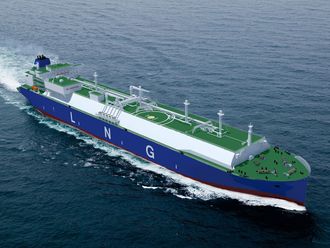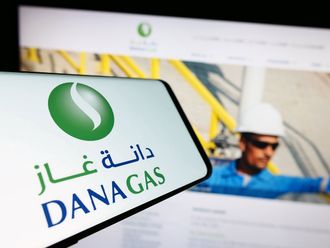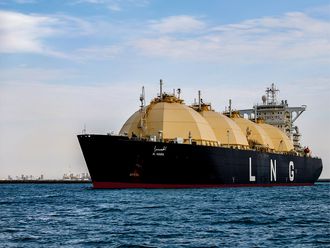Shanghai : China Petroleum & Chemical Corp, Asia's biggest refiner, reported profit more than doubled last year after the government allowed it to increase fuel prices and crude oil costs fell.
Net income rose to 61.8 billion yuan (Dh33 billion) from a restated 28.5 billion yuan in 2008, according to results released yesterday by SSE InfoNet, a unit of the Shanghai stock exchange.
The median profit forecast of 15 analysts surveyed by Bloomberg News was 61.2 billion yuan. Sinopec, as Beijing-based China Petroleum is known, didn't give fourth-quarter figures.
China raised fuel prices in the world's fastest-growing major economy five times last year compared with once in 2008, while the average cost of oil dropped 38 per cent amid the global economic downturn. Sinopec's earnings growth this year may slow as the government reins in energy costs to cool inflation.
"Sinopec clearly bene-fited from strong refining margins in the earlier parts of the year," Neil Beveridge, an analyst at Sanford C. Bernstein, said in Hong Kong. "As crude prices rise, refining margins will come under pressure if the government doesn't raise oil-product prices to keep in step."
Consumer prices in China rose 2.7 per cent from a year earlier in February, the biggest increase in 16 months, the National Bureau of Statistics said on March 11. The government aims to keep the 2010 inflation rate below 3 per cent.
Challenges
Sinopec will face "challenges" this year because the global oil price may stay high and competition in the oil product market is becoming more intense as refining capacity is added both outside and inside China, the company said. PetroChina, Sinopec's biggest domestic rival, is increasing refining capacity at home and acquiring plants overseas.
Sinopec's profit growth in 2010 may slow to 3 per cent with net income reaching 63.73 billion yuan, according to a survey of 15 analyst estimates compiled by Bloomberg.
Sales fell 10 per cent to 1.35 trillion yuan last year because of lower crude and petrochemical prices and the absence of government subsidies, Sinopec said. Almost all of its revenue comes from refining, marketing and distributing petroleum products, according to the company's 2007 annual report. About 2 per cent is from oil exploration and production.
Sinopec, the country's second-biggest oil company and supplier of 80 per cent of China's fuel needs, has risen 28 per cent in Hong Kong trading over the past year compared with a 49 per cent gain in the benchmark Hang Seng Index. Cnooc Ltd, China's biggest offshore oil producer, has climbed 52 per cent in the same period, while PetroChina, China's largest energy company, has advanced 30 per cent.
Sinopec was due to announce earnings through the Shanghai and Hong Kong stock exchanges before the market opens. Spokesman Huang Wensheng declined to comment on the released results.
China's economic growth will remain relatively fast in 2010, which will drive demand for oil and petrochemical products, Sinopec said.
The Beijing-based company's 2009 earnings benefited from rising domestic demand while global rivals suffered as the recession cut fuel use in Europe and US.
China's fourth-quarter economic growth was the fastest since 2007.
Last year, the nation overtook the US to become the world's biggest auto market, boosting demand for motor fuel. The Chinese economy will expand four times faster than the US in 2010, the United Nations said in December.
ExxonMobil
Net income at Exxon Mobil in the fourth quarter dropped 23 per cent to $6.05 billion (Dh22 billion) as losses at its US refineries widened 14 fold, the company said in February.
Chevron's profit fell 37 per cent to $3.07 billion after its refineries and filling stations lost $278,000 an hour as the recession spurred a 9.9 per cent drop in demand for diesel and other fuels, the California-based company said in January.












